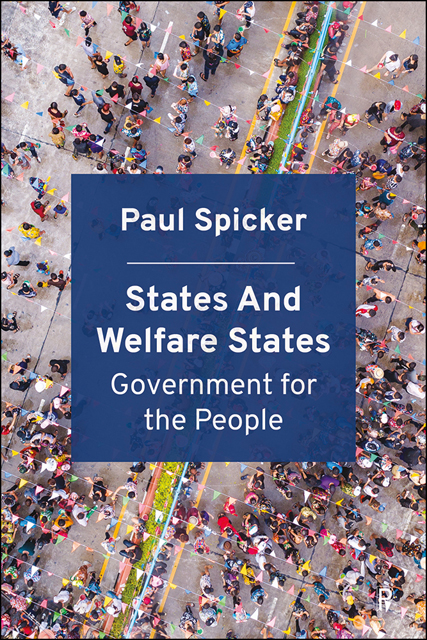5 - Global public policy
Published online by Cambridge University Press: 20 June 2023
Summary
Summary
The responsibilities of states extend beyond their own borders and citizens. This chapter considers responsibilities to non-citizens, direct intervention abroad and the relations between states. Models of states as independent and sovereign sit uncomfortably with developing standards of international governance.
The institutions and policies I have been considering so far have been conceived as social or national issues, and responded to in national terms. Many of the issues which governments are dealing with, however, are not exclusively national: they cannot be limited to one country, either in their causes or their effects. For present purposes, it should be possible to identify four main classes of international action. First, there are the relationships of states to other states. This covers topics such as economic cooperation, competition or the management of hostilities. Second, there is the relationship of the state to people from elsewhere, mainly those who are living within a state’s territory. Examples include the position of refugees, economic migration, and the treatment of foreign criminals. Third, there are global issues – issues that go beyond the capacity of any state to resolve: environmental issues, some global health issues and the regulation of international trade – which require states to work with other states. There are some other economic issues that are so wide-ranging as to be seen as global: the conduct of multi-national corporations, and the management of international credit and debt. Fourth, there is the operation of international organisations, which have come to occupy a major role in the regulation of national governance.
Before I discuss the issues further, it is worth thinking about some of the things they have in common. Every state is seen as responsible for what happens within a distinct territory. The territorial nature of a state, Pierson argues, defines its authority both internally, within its own borders, and externally, in relation to other states. Stilz goes further, identifying some other distinctively territorial powers: rights to territorial jurisdiction (which will affect more people than a state’s own citizens), non-intervention, the control of borders, and rights over resources within that territory. The state, she argues, effectively claims a right of occupancy to the land it governs, analogous to the ownership of property.
- Type
- Chapter
- Information
- States and Welfare StatesGovernment for the People, pp. 54 - 66Publisher: Bristol University PressPrint publication year: 2022



